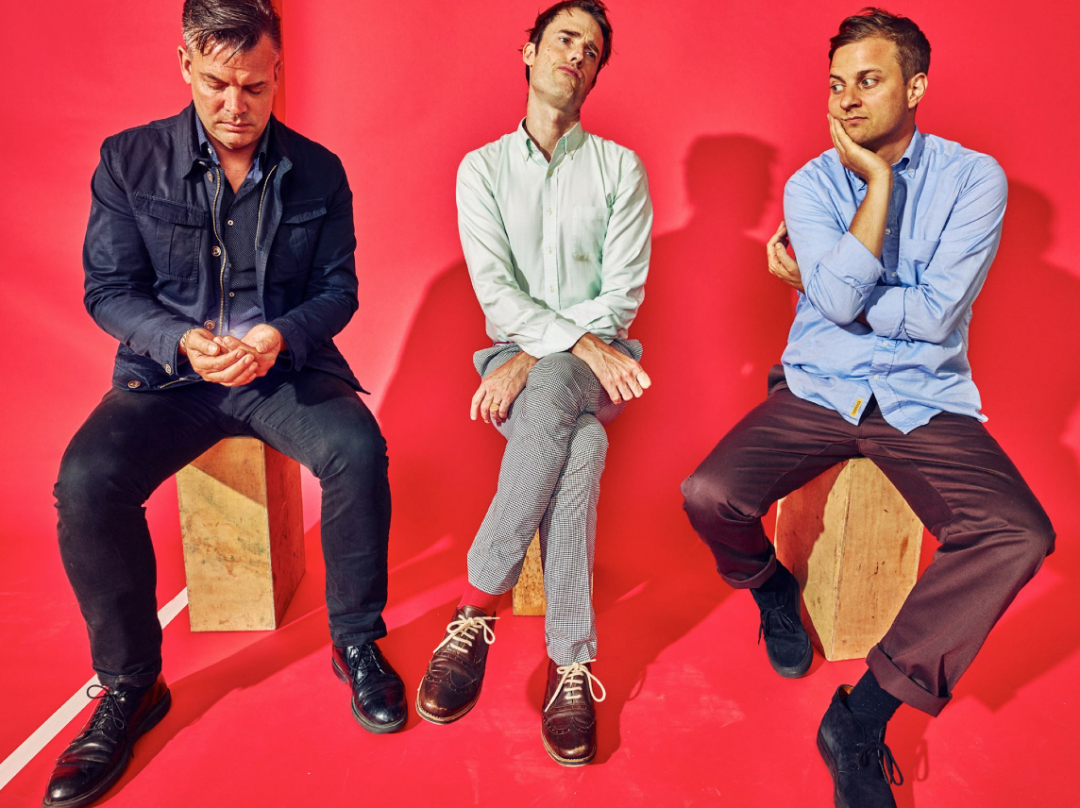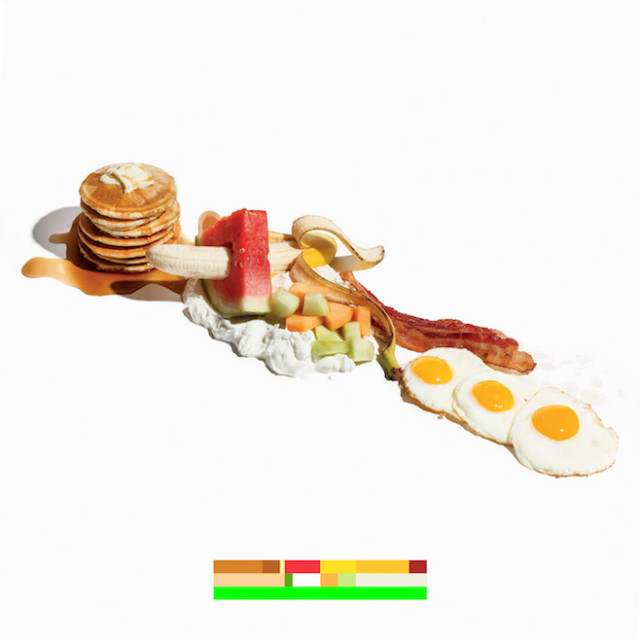The Pros and Cons of the New, Mostly-Instrumental Album from 'Battles'

Photo by Grant Cornett
For over a decade now, New York band Battles has been amassing a loyal, eclectic fanbase with their experimental-math-rock-meets-techno sound. Then there was the three-year hiatus, when work was underway on a new album. The good news is, the band is back and this weekend they’re in Portland for the outdoor extravaganza that is MusicFestNW. We recently caught up with Battles’ guitarist, keyboardist and founding member Ian Williams to pick his brain about their new instrumental album and upcoming Portland performance—and in the process learned what organic chicken has to do with music.
Your upcoming album La Di Da Di is purely instrumental. What are some of the trade-offs when making an album without accompanying vocals?
I think there’s some people who probably like it way more because it’s instrumental, and they don’t like Battles trying to position itself as somewhat of a pop band. And then there are others who might casually take a listen to us and they want the catchy hit, and if there’s no catchy hit then they don’t care about us and they’re going to move on. We probably lose people like that, but in terms of what you gain and you lose it probably fires up our base a little bit more. Everywhere and every step you take there’s a pro and a con. The con is that you’re not in the place you were before, but the pro is that you’re somewhere new.
You’ll be playing at MusicFestNW on Saturday. Does the lack of vocals affect the flow of a live performance?
No, because for a band like us, and even the songs we had that had vocals, the vocals were always considered a little bit more of an instrument. There’s some cheesy idea that your uncle who doesn’t know shit about music would say something like, “When the instruments are playing, well that’s not the song, that’s not the music. The music’s not until Frankie Valli starts singing.” There is this old fashioned idea like that, but to us the singing has always been a little bit more of an instrument. It could be a guitar, a keyboard, or a human. And we’ve never been into the idea of a front man anyway. It’s always been about the collective, it’s always about the group playing together. I think music fans appreciate that, whereas the casual, whimsical consumer of pop culture might not get it as much.
Do you have anything special arranged for MusicFestNW?
We’re just sort of honing our upcoming record, so that’s what we’re still working on. Smoothing it out and making it sound as good as it can. This will be our first show in the United States since 2012, except for the fact that the night before we will have played in New York City. So, we play in New York and then fly to Portland and play. So, I guess I should say it will be our second. It will still be pretty fresh!
Are there any bands in Portland you’ve been following?
Man, I’m not hip enough. I’m not. I have totally fallen off. But I’m getting back. This is my comeback year. I’m going to find out about all the cool stuff. I kind of disappeared for about a year or so, which also involved making a record. So, I sort of fell off, but I’m going to ride that bike again and find out who the kings of Portland are.
What can you tell me about the heavy use of food for La Di Da Di’s cover art?

Battles' La Di Da Di
So, it’s a combination of food, and we make a combination of music. The front cover is food, but the back cover is all of those ingredients that have been put into a blender. It’s the paste. You can read into that it and say that the music is one part this instrument and one part that instrument and that it all goes together, if you’d like.
Several of your tracks have appeared in on game and movie soundtracks. Do you embrace the technology of other mediums as a way of disseminating your music?
I feel like it’s healthy not to be too precious about the display of your music. I’m sort of into the idea of something being available. It’s not necessarily a sacred object, it’s something that could be consumed, something that should be on the shelves of a supermarket. Like, it should be chewing gum. Even if it’s rather obscure music that’s not commercially friendly, I think that you have a duty to make it as commercially available as it can be. Any limitations on success should come from the fact that it’s simply hard to listen to, you know, because it’s too insane or too avant garde for people. I feel like it’s a moral responsibility to take it to the belly of the beast as much as you can, because that actually lets more people hear it. And I’m more interested in simply music, the form of music, and whether it’s good or not, and not so much the sacredness of whether or not the chicken is organic.
For more on the making of La Di Da Di, watch this short documentary by Ableton:
Battles plays MusicFestNW on Saturday August 22.




